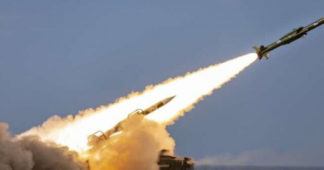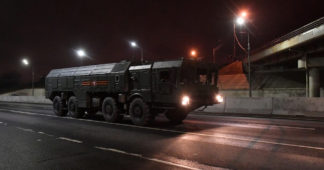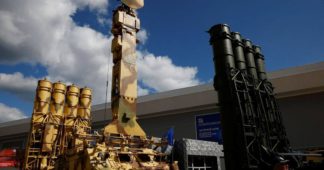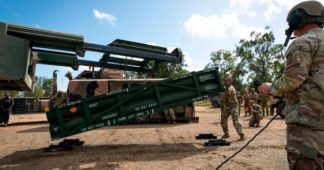Officials across the government reacted strongly to the news that the US is deploying previously banned missiles that could hit Russian territory
July 11, 2024
On Thursday, Russian officials reacted strongly and vowed to respond to the US announcing that it will deploy missile systems to Germany starting in 2026 that were previously banned by the Intermediate-Range Nuclear Forces (INF) Treaty.
“Without nerves, without emotions, we will develop a military response, first of all, to this new game,” said Russian Foreign Minister Sergey Ryabkov. He called the US decision “destructive to regional safety and strategic stability.”
Anatoly Antonov, Russia’s ambassador in Washington, said the deployment could lead to confrontation. “The Americans are increasing the risk of a missile arms race. Here, they forget that going the way of confrontation may set off an uncontrollable escalation amid the dangerous aggravation of tensions along the Russia-NATO track,” he said.
Valentina Matviyenko, speaker of the Federation Council, Russia’s upper house of parliament, warned of a strong response if the US goes through with the deployment. “I hope that it will not happen, because Russia’s response will be harsh and adequate. This is simply unacceptable,” she said.
The INF prohibited land-based missile systems with a range between 310 and 3,400 miles. The US and Germany said in a joint statement that the planned deployment includes a land-based version of nuclear-capable Tomahawk missiles, which have a range of about 1,000 miles and are primarily used by US Navy ships and submarines.
The US and Germany also said that the deployment will include SM-6 missiles, which have a range of about 290 miles, and “developmental hypersonic weapons.” The statement said the missiles have “significantly longer range than current land-based fires in Europe.”
There’s no indication yet that the missiles will be armed with nuclear weapons, but the statement leaves open the possibility. The US already has nuclear bombs stationed in Germany as part of NATO’s nuclear sharing, but they are B61 gravity bombs that need to be dropped from aircraft.
Before the INF was signed in 1987, the Soviet Union had land-based nuclear-armed missiles deployed in its western territory that could hit western Europe, and the US had similar systems deployed that could hit Soviet territory.
When the US withdrew from the INF treaty, it claimed Russia was violating the agreement by developing the ground-launched 9M729 cruise missile. Russian officials denied the missile was a violation, saying it had a maximum range of 298 miles.
Russia also said the US was violating the INF by establishing Aegis Ashore missile defense systems in Romania and Poland. The systems use Mk-41 vertical launchers, which can fit Tomahawk missiles. During the NATO summit, the US also announced that its Aegis system in Poland is now operational.
The US refused to negotiate with Russia on the INF issues, and the Trump administration tore up the treaty in August 2019 and began testing previously banned missile systems almost immediately after. It was clear the US exited the treaty so it could deploy intermediate-range missiles near China, leading Russia to propose a moratorium on the deployment of INF missiles in Europe. But the US never accepted the offer.
Also read
Western capitalists are drawing humanity into nuclear annihilation. Stop them!
We remind our readers that publication of articles on our site does not mean that we agree with what is written. Our policy is to publish anything which we consider of interest, so as to assist our readers in forming their opinions. Sometimes we even publish articles with which we totally disagree, since we believe it is important for our readers to be informed on as wide a spectrum of views as possible.











